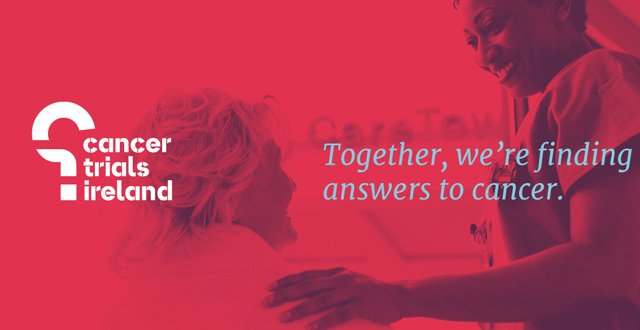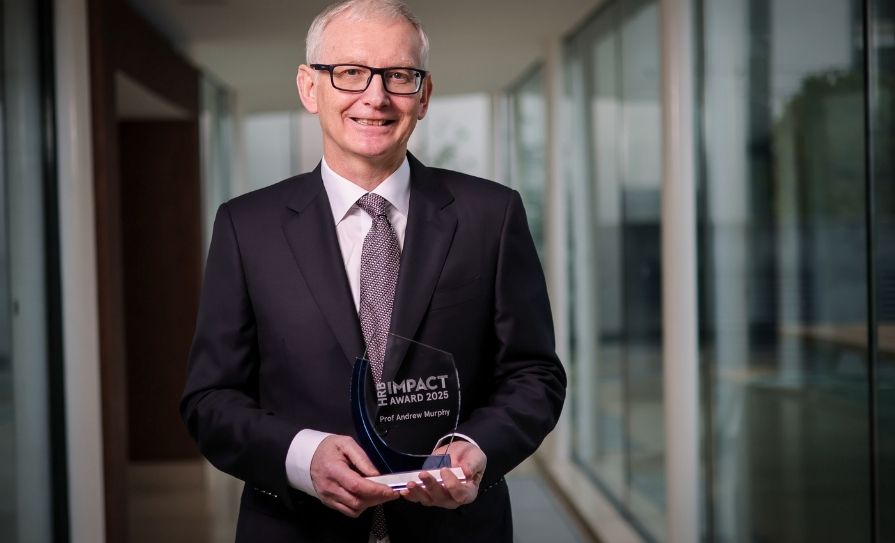The ECOG-ACRIN Cancer Research Group is one of the leading international cancer research groups and its aim is to reduce the burden of cancer and improve the quality-of-life and survival of cancer patients.
Its research spans the cancer care pathway through studies of prevention, early detection, diagnosis, treatment, patient-centred outcomes and associated correlative science, including the development of cancer-related biomarkers
It has nearly 1,100 member institutions in the US and around the world, including Cancer Trials Ireland, with approximately 12,000 physicians, translational scientists, and associated research professionals involved in group research.
Leading US oncologist Prof Peter O’Dwyer, who was born in Ireland and educated in Trinity College Dublin, is the incoming co-Chair of ECOG-ACRIN. Addressing a recent Cancer Trials Ireland DSSG scientific meeting, entitled ‘21 years of cancer trials in Ireland – What’s next?, he outlined the history, current research work and future priorities of the group.
Prof O’Dwyer explained that the history of cancer co-operative groups “actually parallel the history of cancer treatment right back to when Sidney Farber treated ALL [acute lymphoblastic leukaemia] patients with methotrexate” [US Paediatric Pathologist Farber became known as the father of chemotherapy and his landmark results were published in the <em>New England Journal of Medicine</em> (<em>NEJM</em>) in 1948].
“Shortly after that a chemotherapy service centre was set up by Congress and in 1955 the Eastern Solid Tumour Group, the pre-cursor of ECOG, was formed. Three years later, in 1958 the first randomised co-operative trial was reported and in 1960 there were 11 co-operative groups. What is important here is the idea of the controlled trial, the importance of the statisticians in determining how these trials would evolve, was there from the very beginning.”
Prof O’Dwyer said that the activities of the co-operative groups, “not just ECOG, but many of the other groups too, have been practice-changing”.
“They have changed the practice of medicine, they have changed the care of patients with cancer,” he told the meeting, citing the positive findings on the benefits of adjunct chemotherapy in node-negative breast cancer patients as an early example.
Prof O’Dwyer added, however, that “some of the most important contributions may not actually be positive trials, they may be negative trials”, giving the example of a 1999 trial published in the <em>NEJM </em>that contradicted the then prevailing view that stem cell transplantation was essential for the management of metastatic breast cancer. He cited similar trial findings for prostate cancer, melanoma, and lymphoma, etc.
<h3 class=”subheadMIstyles”>Collaboration</h3>
Prof O’Dwyer praised the setting up of ICORG, now Clinical Trials Ireland and its collaboration with ECOG-ACRIN.
“The participation of Cancer Trials Ireland in ECOG studies has been associated with outstanding performance reviews. Every audit has been outstanding. The quality of the data is phenomenal.”
Acknowledging the barriers to international collaboration, such as logistics and regulatory differences, he called on the pharmaceutical industry to ensure stable drug supply in multi-centre clinical trials.
Discussing the creation of ECOG-ACRIN in May of 2012, when two US National Cancer Institute-sponsored co-operatives came together, Prof O’Dwyer explained “biomarker-driven science lay at the heart of the merger”.
“And that biomarker could be imaging, it could be genomic, it could be a multitude of current technologies, but that we would be able to find biomarkers as we went forward that would tell us who were the patients at risk, how to diagnose them early, and finally, how to treat them… So what the addition of ACRIN added was screening and surveillance and the potential for cancer prevention in large populations.”
Prof O’Dwyer added that increasing the involvement of cancer patients and advocates in cancer research, “and all aspects of the design and work of our clinical trials”, has been a key task of the group.
Highlighting the organisation’s current work, he gave updates on a number of ongoing trials, including a major one on breast cancer screening.
<h3 class=”subheadMIstyles”>Future</h3>
Future research priorities for ECOG-ACRIN include genomics, immuno-oncology therapies, and de-intensification of treatment; “if patients are going to be cured they want to be cured without side effects…”.
Prof O’Dwyer said: “Novel biomarkers and matched novel therapies are clearly important [too]. The field evolves and we are involved in cancer treatment so we need to be bringing forward in a very measured and logical way some of these novel therapies and then applicability to different racial and ethnic populations. In a diverse country like the US and an increasingly diverse society as is present in the EU, it is clearly going to be important and is part of our future vision.”
He noted that further exploration of existing ECOG-ACRIN data, such as genomics, “is really important. Exploring genomics in standard therapy is a key goal”. He confirmed that the group has now secured funding to sequence all patients on five of its clinical trials.
“We are close to doing a deal on sequencing all of the patients who get on ECOG-ACRIN trials, and we are looking into the potential for germline sequencing and how that could be managed, obviously there are big issues there. So getting as much information on the tumours and the patients that we treat we think is really going to help refine treatment going forward,” he told the meeting.
Prof O’Dwyer also spoke about the potential of artificial intelligence in cancer detection through imaging analysis and other “multiple areas”.
Concluding, Prof O’Dwyer said that ECON-ACRIN is keen to “create opportunities for early career investigators and scientists to participate in these studies and to interrogate these big datasets that will be available and to propose clinical trials…”.
A video of his full presentation and the other meeting speakers can be viewed at <a href=”http://www.cancertrials.ie”>www.cancertrials.ie</a>.













Leave a Reply
You must be logged in to post a comment.